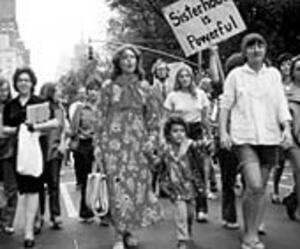Trudy Orris
Shaped by her experiences in post-Holocaust Europe and older than most civil rights volunteers, Trudy Orris brought her children with her to participate in demonstrations down South. Born in Greenwich Village in 1916, Orris grew up experiencing antisemitism as one of only two Jewish children in her school. Near the end of World War II, Orris’s husband was drafted into the Army Medical Corps in Germany. Her experiences living with him as a Jew in post-war Munich for two years as well as her Communist political views made her determined to work against racism in her own country. On returning to the United States, she and her two children repeatedly went south to participate in demonstrations against segregation and voter registration drives. She also brought student activists north to help fundraise and to receive medical care. In Selma, she participated in marches and acted as support staff for the medical personnel. She also helped to found the New York Parents of SNCC (Student Nonviolent Coordinating Committee) as a way of supporting younger civil rights activists. For over twenty years, she served as a member of the Women’s International League for Peace and Freedom, the organization WREE (Women for Racial and Economic Equality), and the National Alliance, an organization that fights for the rights of African American political prisoners. She was also interested in securing freedom for women political prisoners and in lifting the US embargo against Cuba.



